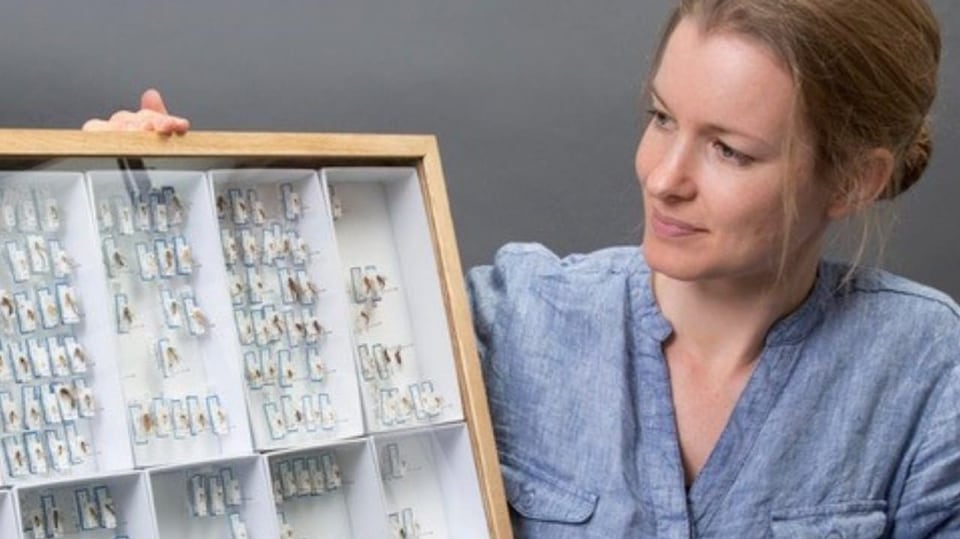Contents
Everyone is talking about biodiversity and species extinction. But species connoisseurs with their deep specialist knowledge are themselves an endangered species. That has consequences.
Seraina Klopfstein’s specialty is special: she is an expert on parasitic wasps. In her office at the Natural History Museum in Basel, the curator of the insect collection shows an insect box with hundreds of small black parasitic wasps – neatly impaled and labeled.
Legend:
The curator Seraina Klopfstein with her insect box with hundreds of small black parasitic wasps.
Lisa Schäublin, NMBE
Whether she can name the little animals without further ado? “No”, laughs Seraina Klopfstein, “there is no one in the world for this special genus of parasitic wasps”. The genus has not yet been processed, its characteristics not yet recorded in order to describe it.
Only a handful of people are even able to do this, because it requires very deep knowledge. Saraina Klopfstein has this knowledge. But that makes her a rare species herself.
It’s up to the education
Taxonomy, the systematic classification of animals and plants, suffers from a “lack of skilled workers”. The museum curator is also President of the Swiss Systematic Society and thus the top taxonomist in Switzerland.
Secondly, this basic research has lost much of its importance at universities. Anyone who studies biology today hardly ever spends any more time in the field, but mainly in the laboratory. It is molecular biology, genetics, that is taught at universities today.
“We have boxes full of material for which I can’t find any experts, which we can’t process at the moment because the experts don’t exist,” says Seraina Klopfstein. Many animals and plants are dying out before we even know them.
lack of knowledge among the population
Thomas Flory from Pro Natura observes that the relationship to nature has declined throughout society. “We spend less time outside. We sit in the office, children play outside less. We have little experience with nature and perceive it less – and thus also the animals and plants.»
There’s less to see
In addition, due to the extinction of species and the decline in animal and plant populations, there is actually less to discover today. “Which child, which adult has seen a cockchafer again this year?” asks Thomas Flory. A rhetorical question.
Courses and excursions are very popular
After all, the interest in plants, animals and habitats has increased again in many parts of the population, according to the experts. Lectures, field botany or ornithology courses are met with great interest. A reason for hope for the specialists
